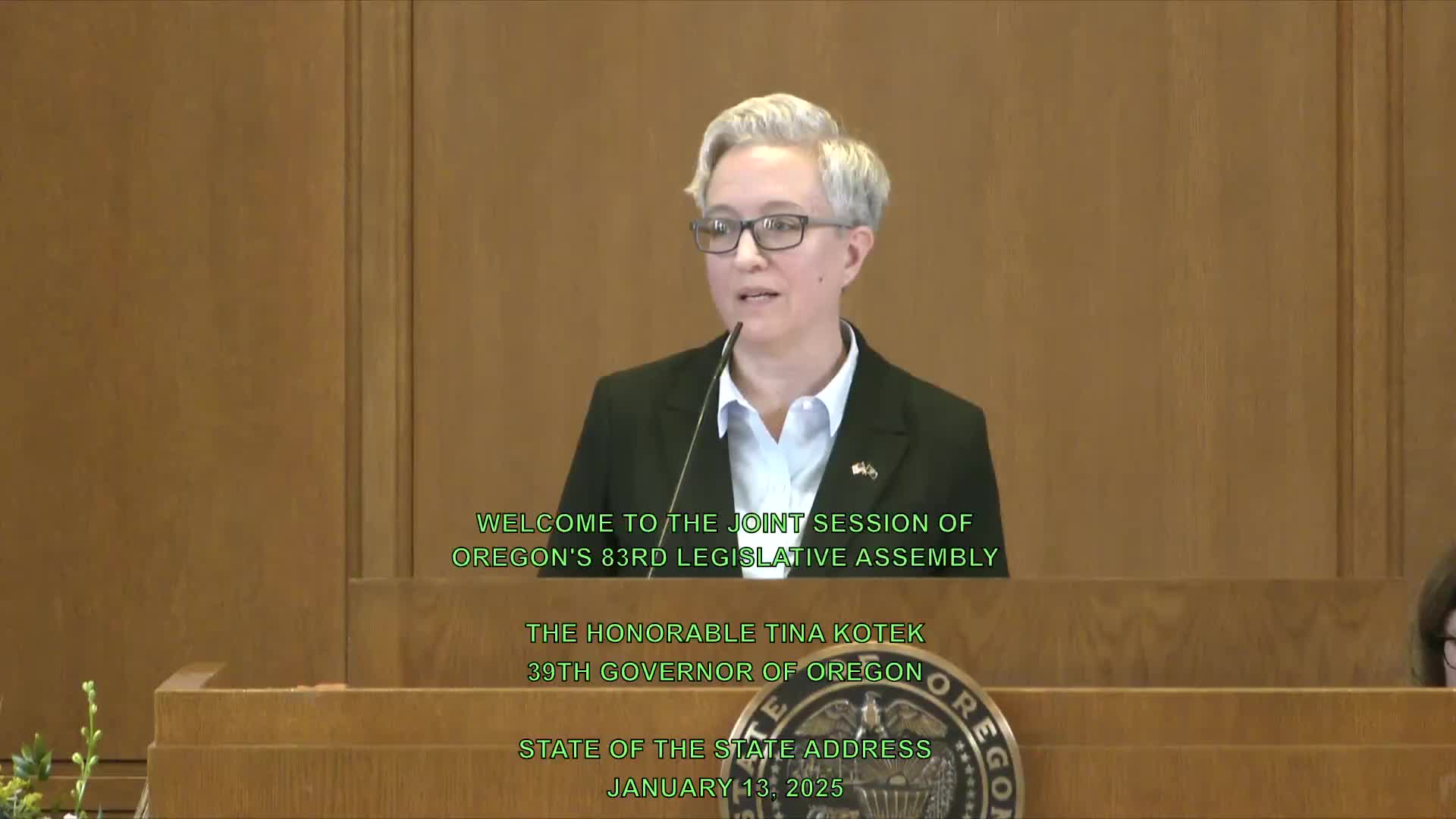Article not found
This article is no longer available. But don't worry—we've gathered other articles that discuss the same topic.
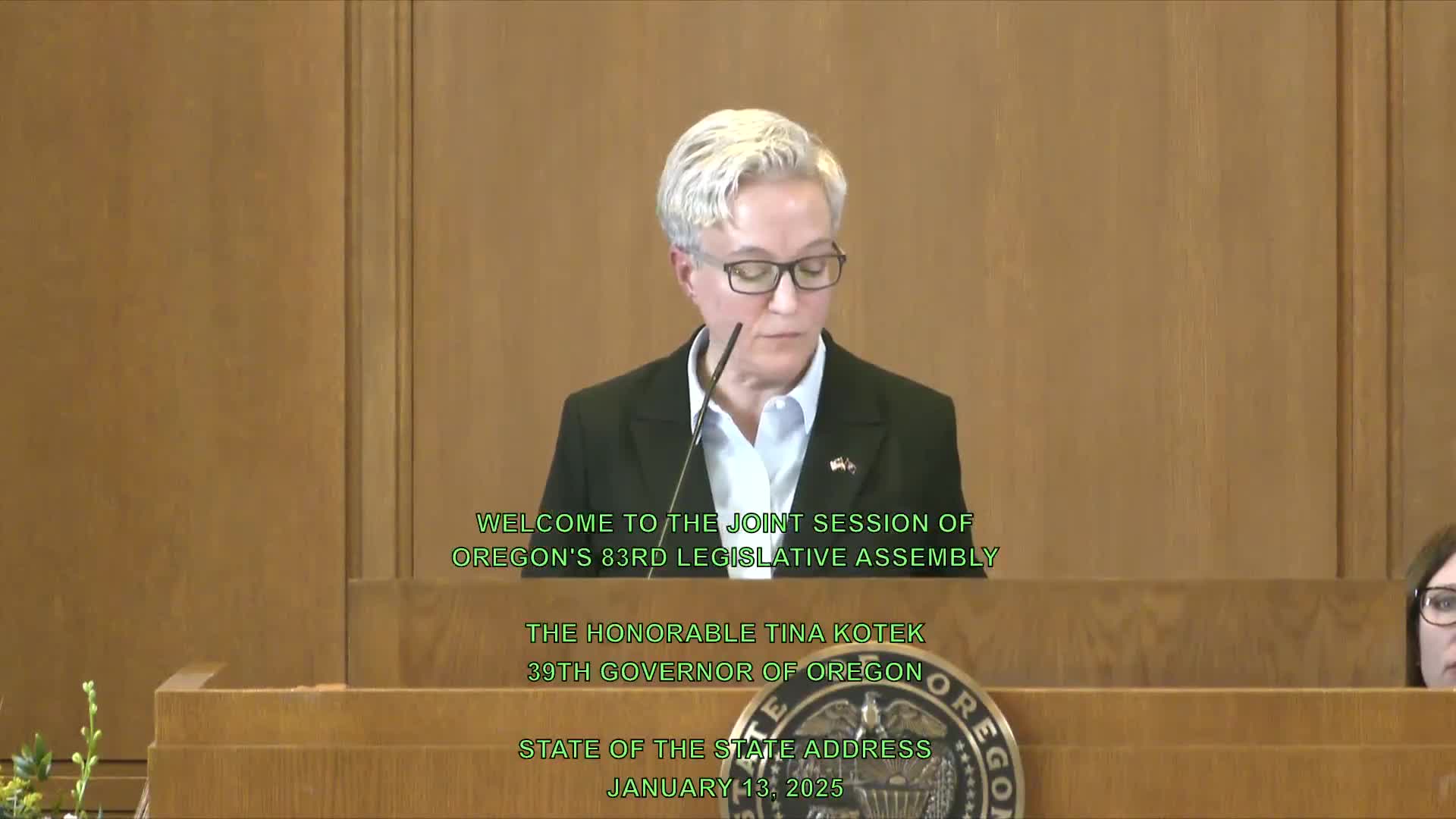
Kotek highlights agency reforms, hiring improvements and welcome for Public Defense Commission
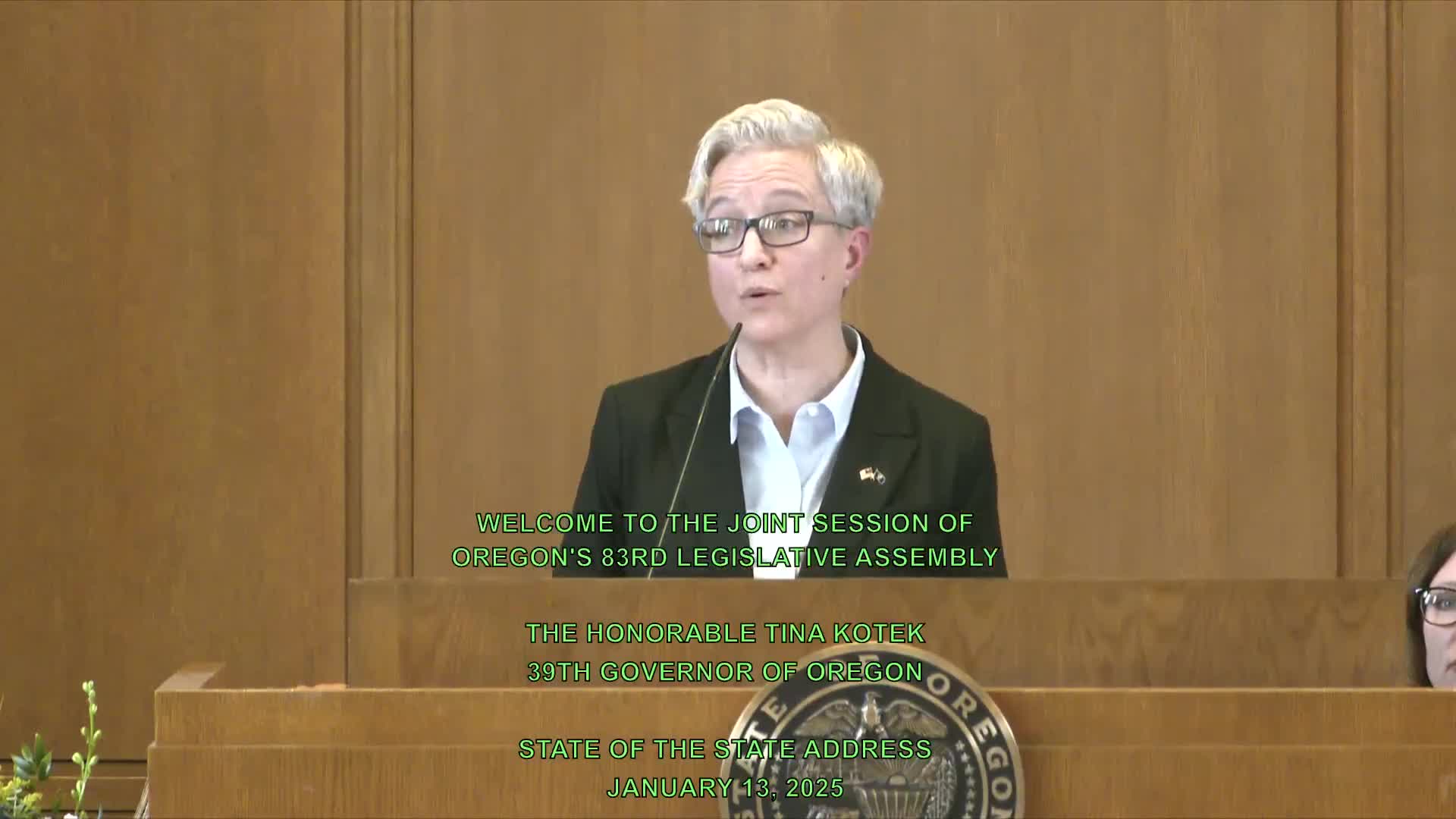
Kotek requests wildfire reserves, mitigation funds and federal grant wins for resilience and clean energy
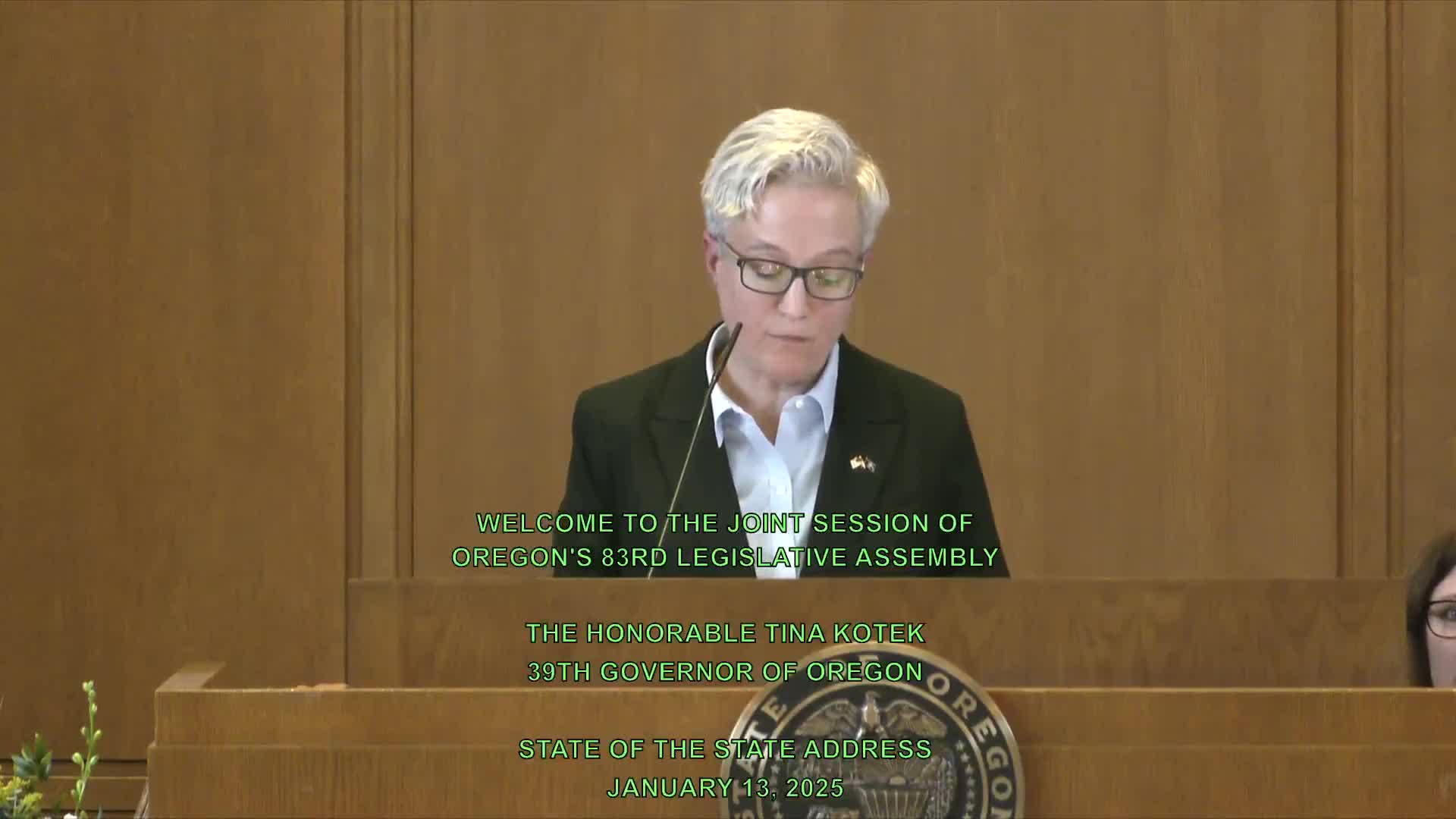
Kotek pushes for early literacy, accountability and a statewide student data system
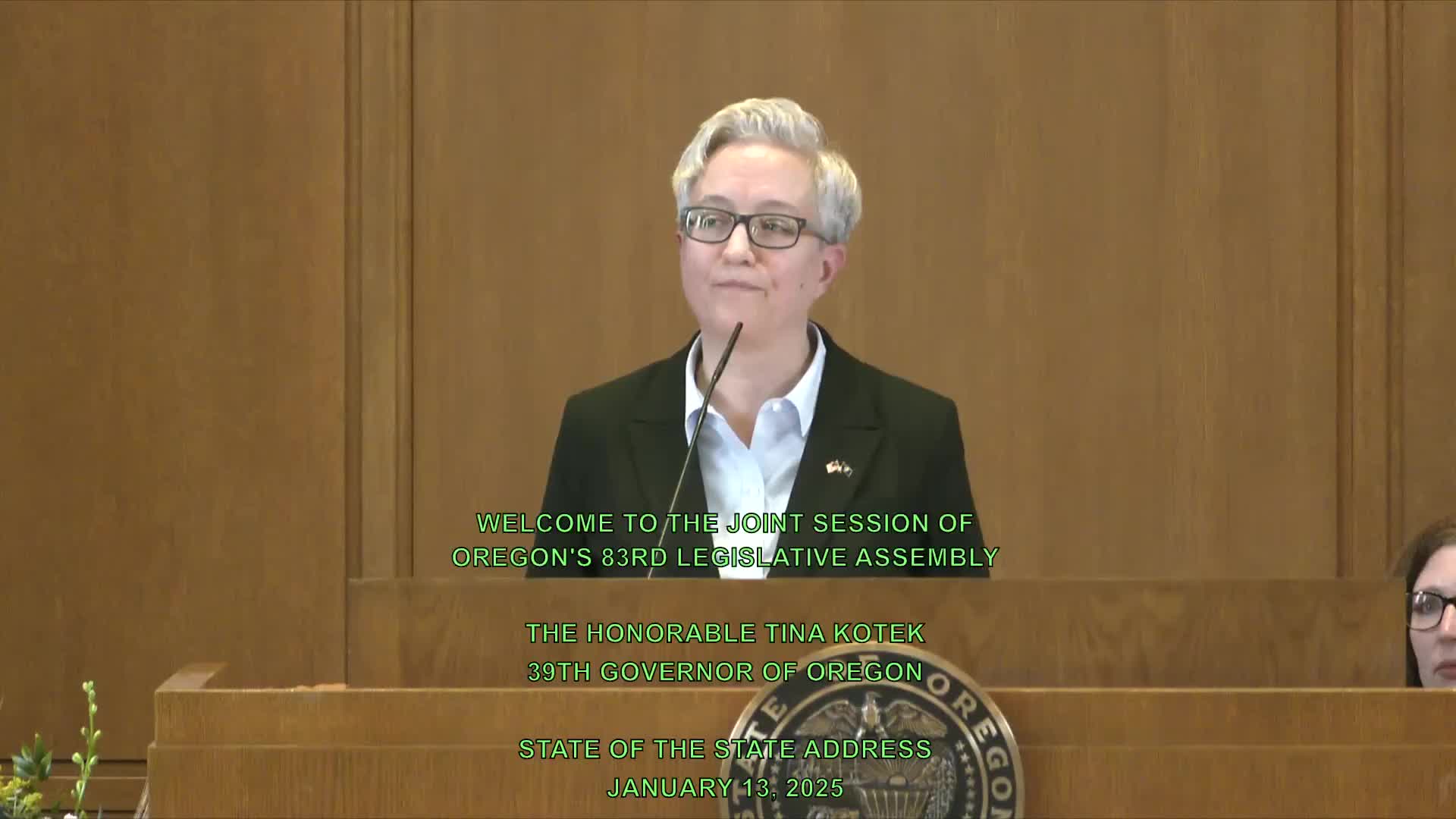
Kotek seeks expanded treatment beds, workforce funding to address mental health and addiction
